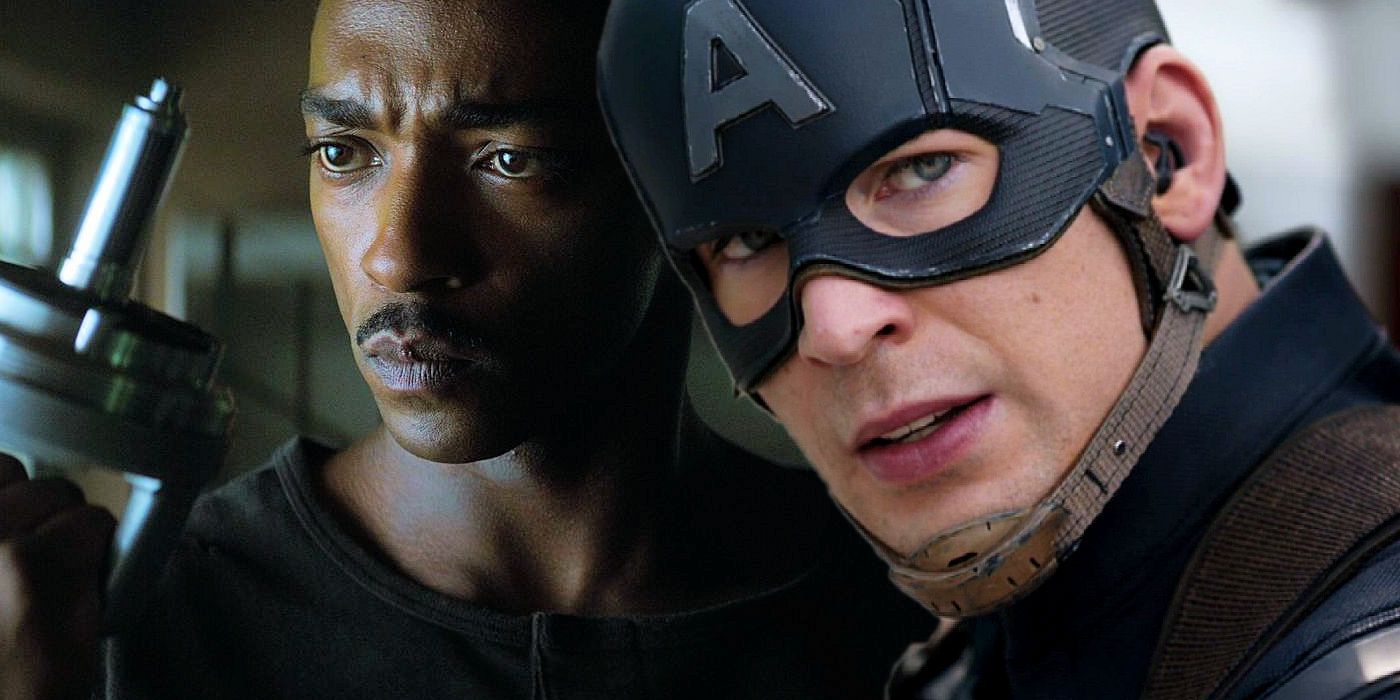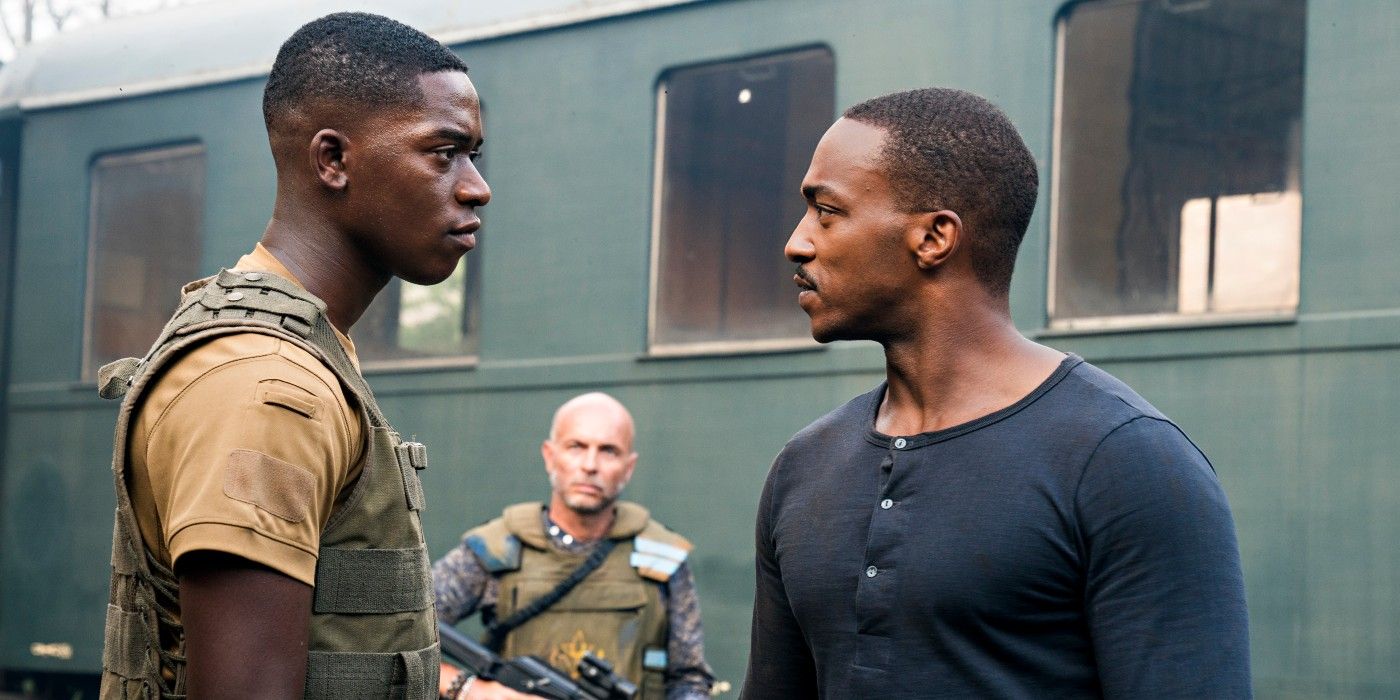
Anthony Mackie's new movie, Outside the Wire, isn't exactly Terminator, but it's still a scary look at what a machine could do as a modern-day Captain America. The idea of an artificial intelligence becoming sentient and turning on humans is a fear that has plagued the general public for decades, and movies like Terminator and even Ex Machina haven't helped assure moviegoers. Outside the Wire doesn't follow the same story beats as those two films, but what's presented is frightening enough.
Outside the Wire begins as a somewhat normal military movie set in the near future, but it doesn't take long for things to go up a notch. Before the action truly begins, though, it's revealed that Mackie's Cpt. Leo is an android - the United States' first super-soldier of its kind, though he looks and acts human on the outside. What's interesting about this is that Mackie's Falcon is also believed to be Steve Rogers' successor as Captain America in the Marvel Cinematic Universe, thus drawing parallels - good and bad - between the two super-soldiers, Leo and Rogers.
Creating a superhero like Captain America doesn't seem possible, but a super-soldier like Leo is at least somewhat plausible; artificial intelligence already exists and it's an area scientists are continuing to develop. But if their research leads to the creation of someone like Leo, then there are inherent dangers in that. Unlike Captain America, Leo is practically untouchable. His body can withstand most attacks, where as Captain America is still susceptible to normal dangers; he can take out a company of enemies without any real issue; and he can act of his own volition, without any worry of remorse or answering to a government. When Captain America refused to sign the Sokovia Accords, he was forced to go on the run. It's not necessarily the same for Leo.

Captain America is a famous superhero around the world - even in-universe - because he's a symbol of the United States military. Leo, meanwhile, is merely a tool to be used by the military, as he so eloquently puts it to Lt. Harp in his speech about why he's Black. A super-soldier like Captain America can kill practically anyone he comes into contact with, but he doesn't because of his ideals. Someone like Leo, who, again, is very much capable of taking on a battalion all by himself, is dangerous because he can't be stopped - not easily, at least. And above all, an android like him is capable at thinking several steps ahead of humans, given his computational power.
All of this is evident by Leo's plan to attack the United States with nuclear bombs; he knows full well what he's doing, and he believes nuclear warfare is the only way to achieve peace. He thinks logically, not emotionally, despite the fact that he implies he feels more than humans do. And so he can't be reasoned with because he's computed that his plan is the best course of action. Perhaps the most obvious comparison between the two super-soldiers is when Leo is interrogating Koval's assassin. Leo shot the assassin only moments before, and in order to get the information he needed, he pressed on the assassin's wound, saying, "I can do this all day." It's a line Captain America is famous for, but his version is seen as a counter to oppression and villainy. Leo, however, uses the line to inflict fear and pain. That scene itself is enough to show the difference in super-soldiers, with Leo representing a more conceivable outcome in real-life.
from ScreenRant - Feed https://ift.tt/3qB3VnC

No comments: